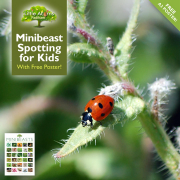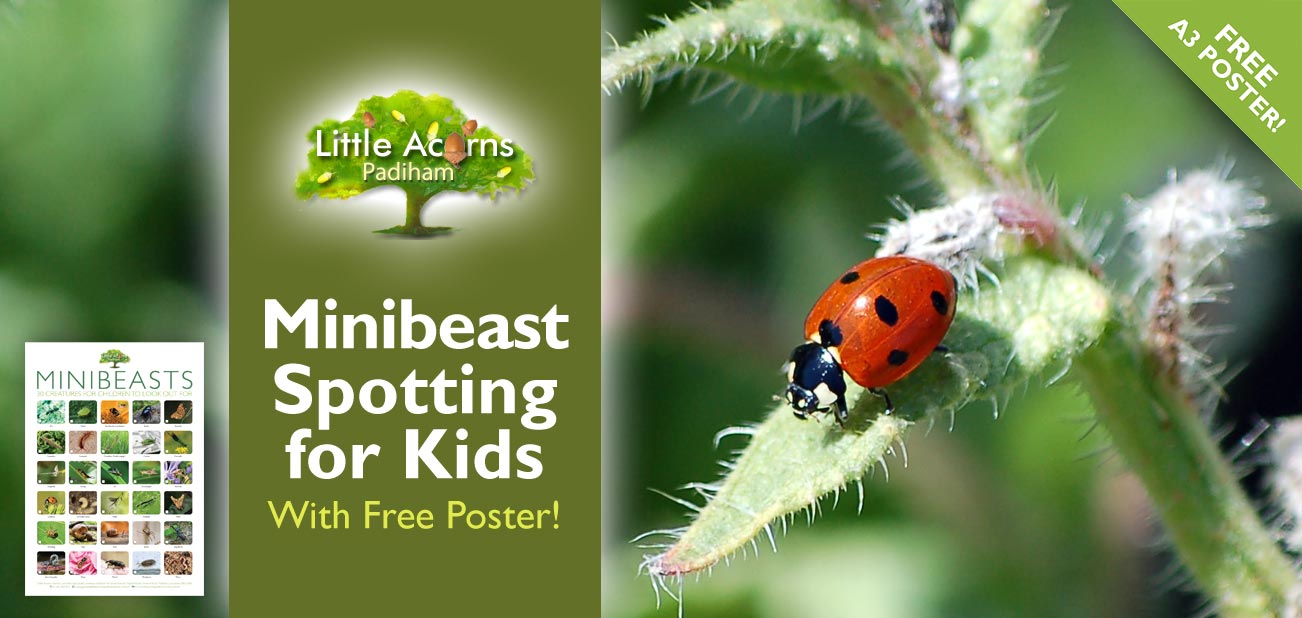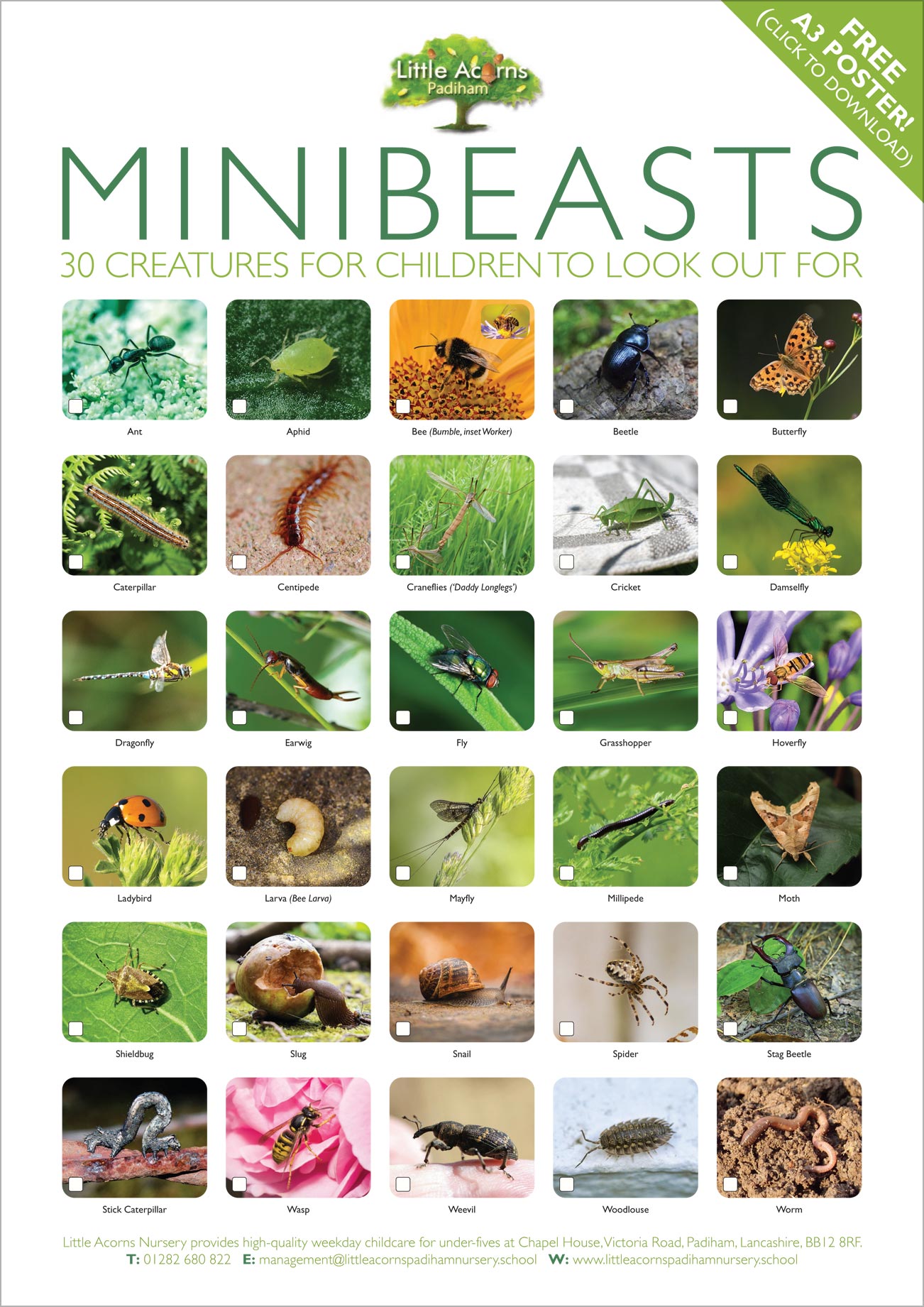— Which Style is Best?
There are many different ways to approach parenting. Sometimes, however, it can be a challenge to know which parenting style is the most appropriate for a child and a specific situation. Most parents will want their child to understand the boundaries they set, while also facilitating a happy, fun-filled childhood. Most will also want their children to be kind and respectful to others and become well-rounded, confident individuals. At the same time, parents will need to decide how strict or lenient they are in their parenting approach. Which style is best for the child? Terms like ‘gentle parenting’, ‘helicopter parenting’, ‘authoritative parenting’ and many others are often discussed online and in the press — but it may not be clear what each style means! That’s where today’s Quick Guide to Parenting Styles comes in. It should give parents a better idea of where their current parenting style fits in, and which style(s) may be the most beneficial for their child.
Quick Guide to Parenting Styles
Each parenting style combines different levels of warmth, empathy, engagement, control, and structure:
- Authoritative parenting combines a high degree of engagement and warmth towards the child, a firm structure, and clear boundaries. Not to be confused with…
- Authoritarian parenting, which combines low warmth, very strict rules, and an extremely high degree of control over the child.
- Gentle parenting combines high levels of empathy towards the child, respectful communication, and consistent limits. Not to be confused with…
- Permissive parenting, which combines a high level of warmth towards the child, a low level of structure, and few enforced boundaries.
- Uninvolved parenting combines a low level of warmth towards the child, a lack of engagement with them, and minimal, if any, structure.
- Helicopter parenting combines high involvement and high intervention on the part of the parent, and limited independence for the child.
- Velcro parenting is associated with high emotional closeness with the child and difficulty separating from them. It may also reciprocate to result in a ‘velcro’ baby or child.
Let’s take a closer look at each parenting style and see what the experts say.
What is Authoritative Parenting?
With authoritative parenting, parents are warm towards children, showing empathy and sensitivity. They aim to be good role models for the child. Boundaries are set through measured reasoning with children, and positive reinforcement is implemented to achieve desired standards. Punishments and threats for non-adherence to rules are avoided through such an approach, while cooperation and a level of age-appropriate maturity is nurtured.
Studies have shown that authoritative parenting has amongst the best outcomes for children, who tend to grow up academically successful, well-behaved, independent, and well-liked among peers and adults. Incidents of depression, anxiety and delinquency amongst children raised by authoritative parents are also low.
“Research suggests that the best-adjusted, best-behaved, most resourceful, and highest-achieving kids have authoritative parents — not authoritarian ones.” — parentingscience.com
Do not confuse Authoritative parenting (see above) with Authoritarian parenting (see below) — they’re quite different!
What is Authoritarian Parenting?
With authoritarian parenting, the parent uses a dictatorial style that requires blind submission and total compliance from their child. High standards are demanded, and non-compliance is punished. It is not a warm approach, in any sense, and rules are expected to be followed without explanation, dialogue, support, or debate. The parent is all dominant.
While children quickly learn the rules, they often learn through fear rather than through love, reasoning, or understanding. Children brought up in authoritarian households often develop mental health problems, low levels of confidence, low self-esteem, and reduced emotional expression.
“Authoritarian parenting has been linked with the development of mental health problems, including anxiety, depression, and low self-esteem.” — parentingscience.com∞
What is Gentle Parenting?
At the heart of gentle parenting are high levels of kindness, respect, and empathy towards the child. Children’s well-being and happiness are nurtured. The relationship between parent and child is strong and, in many ways, this parenting style is similar to authoritative (N.B. not authoritarian) parenting. Structure and boundaries are clearly set, but they are applied gently, through reasoning, in a calm and measured way — without the threat of punishment. This is especially appropriate for the youngest children, who have not yet gained full control over ‘big’ emotions.
Children brought up under a gentle parenting style tend to feel nurtured, loved, secure, and emotionally supported. Their feelings are acknowledged and respected by parents, who reason calmly with them and give them choices appropriate to their age, all within clearly defined boundaries. With gentle parenting, it’s important to maintain those limits, however, otherwise there is a risk of this parenting style drifting towards the permissive variety.
“Gentle parenting does not equate to permissiveness. It involves setting clear and consistent boundaries while offering children age-appropriate choices within those boundaries. This fosters a sense of autonomy and helps children learn to make responsible decisions” — PositivePsychology.com∞
What is Permissive Parenting?
The permissive parenting approach is also sometimes known as ‘indulgent parenting’. With this style, parents are warm, sensitive, and emotionally responsive towards their children and, as one might expect, studies show that that’s good for them. However, permissive parenting is also associated with a lack of set boundaries and structure — and that can lead to problems. Because children of permissive parents self regulate, they may be perceived by others to be rather out of control, lacking in self-discipline, and falling short of the usual behaviour standards expected by most.
That said, children of permissive parents may turn out quite resourceful and have high self-esteem. And, because permissive parents prioritise happiness in their children, it stands to reason that they often have immense fun as they grow up. The lack of imposed boundaries can, however, be a double-edged sword — not least when it comes to things like safety, behaviour, and self-control. Indeed, some studies found that children brought up in permissive households can have disruptive behaviour and even elevated levels of aggression compared, say, to children raised in authoritative households.
“Permissive parents aren’t demanding. They don’t assign their kids many responsibilities, and they don’t encourage kids to meet adult-imposed behaviour standards. Instead, they allow — as much as possible — kids to regulate themselves.” — parentingscience.com∞
What is Uninvolved Parenting?
Uninvolved parenting (also sometimes referred to as neglectful parenting) is associated with a disconnect between the parent and child. There is little, if any, affection, empathy, or engagement towards the child, who is left very much to their own devices. Parents do not attempt to be good role models, and there is little or no structure and guidance for the child. This may be for a variety of reasons, for example, due to parental illness, the pressures of work, lack of other support, and so on. So, rather than jump to judging uninvolved parents, it’s important to first understand the reasons behind the situation and appraise the availability of potential help.
Studies indicate that children of uninvolved parents tend to have the least positive outcomes compared to those brought up under the other parenting styles. Children may have behavioural issues, lack emotional security, have low self-esteem, and perhaps have attachment struggles. On the other side of the coin, however, learning to grow up without parental support may force them to become very independent and, through necessity, good problem solvers.
“There is overwhelming evidence that kids need parental warmth to thrive. Nurturing, responsive parenting leads to better emotional, cognitive, and behavioural outcomes.” — parentingscience.com
What is Helicopter Parenting?
The term helicopter parenting is often seen in the press and on social media. It refers to a parenting style where the parent hovers over everything a child does, intervening constantly, and being deeply involved in everything the child does. Every move is micro-managed.
While this parenting style may result in the child feeling well-supported and protected by the parent, the child has limited independence and autonomy under this style. They may even have tendencies towards a feeling of entitlement. Children of helicopter parents may not have the space to fully develop skills like problem-solving, self-reliance, resilience, confidence, independence, and learning through trial and error. Some studies even suggest an association with later incidence of anxiety and/or depression.
“This intense focus can negatively impact a child’s mental health, self-image, coping skills, and more.” — Parents.com∞
What is Velcro Parenting?
Velcro parenting is another term that you sometimes hear about in the press and on social media. It refers to a style where the parent forms an unusually strong closeness to the child — emotionally, physically, and even socially. They constantly avoid separation from the child and, indeed, one of the results of this is that the child can sometimes reciprocate to become a ‘velcro baby’ or ‘velcro child’.
This parenting style forms close bonds between parent and child. The child is likely to feel deeply loved, nurtured, emotionally secure, and well cared for. However, an unintended consequence of this parenting style is that it can potentially lead to separation anxiety in the child, for example, when they start nursery or school. Children of velcro parents may also be lacking in skills like independence, resilience, and confidence.
“The problem emerges when parents stay too close for too long, which results in children and teens feeling less confident, more anxious and more dependent on the parent to make decisions or soothe every discomfort.” — Ann-Louise Lockhart, paediatric psychologist∞
Final Thoughts
So, from gentle and authoritative to helicopter, velcro, permissive parenting and more, today’s quick guide should serve to help parents better understand the key parenting styles that we hear about so often. By understanding them, parents can implement approaches that optimise confidence, independence, emotional well-being, and good behaviour in their children. That said, it’s important to understand that there is no single rulebook that fits every family, child, stage of development, or situation perfectly. What works beautifully for one infant may feel completely different with a more curious toddler, or an increasingly independent preschooler, for example. Parents may therefore not fit neatly into just one category. Many of us move between styles depending on the day, our child’s age, our own energy levels and what life is throwing at us at any given time. Today’s guide to parenting styles is therefore here to support knowledge, reflection, reassurance and confidence — not perfection.
Little Acorns Nursery, Padiham
High Quality Weekday Childcare Near Burnley
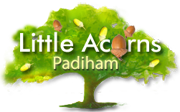
 If you have a baby or child under five and need a high-quality childcare service in Padiham or near Burnley, Little Acorns Nursery would make a wonderful choice. At our lovely home-from-home setting, we nurture every child to bring out the best in them — to give them the best start in life. Rated as a ‘Good Provider’ by Ofsted, the nursery also supports free childcare funding for eligible families.
If you have a baby or child under five and need a high-quality childcare service in Padiham or near Burnley, Little Acorns Nursery would make a wonderful choice. At our lovely home-from-home setting, we nurture every child to bring out the best in them — to give them the best start in life. Rated as a ‘Good Provider’ by Ofsted, the nursery also supports free childcare funding for eligible families.
Interested in a nursery place at Little Acorns, Padiham? Get in touch using one of the following options to take the first step — we’ll be delighted to hear from you:
Our Padiham location, close to Burnley, may also suit families living nearby in Hapton, Rose Grove, Altham, Huncoat, Read, Simonstone, Sabden, Higham, or Wood End.
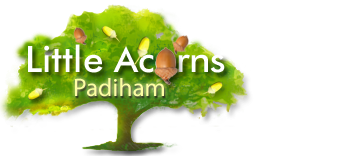
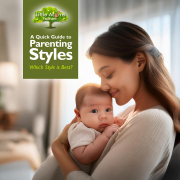
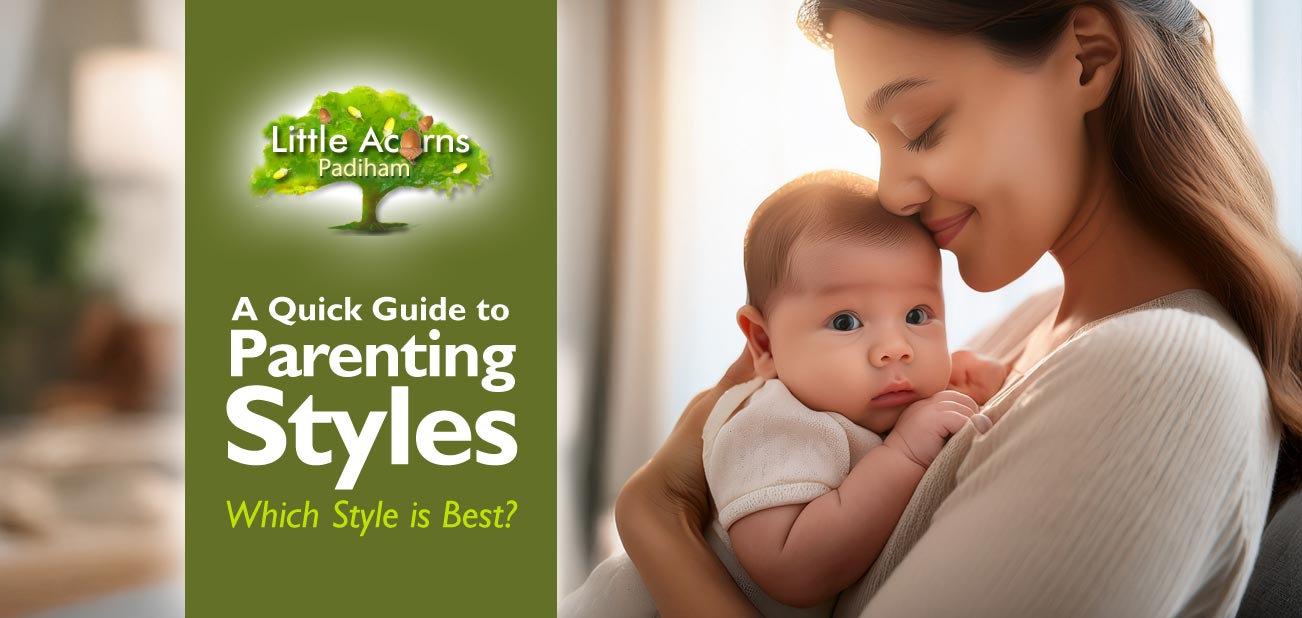




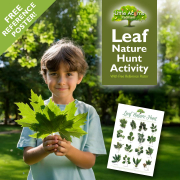
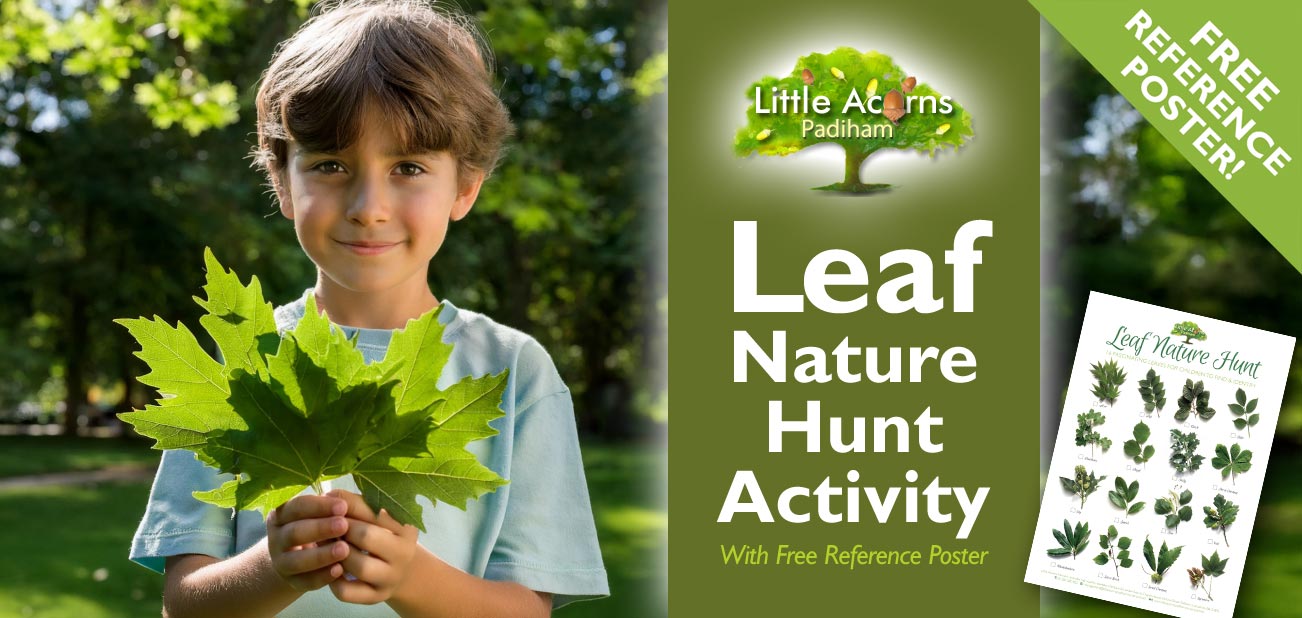
 Summer and autumn are wonderful times for children to experience nature in its full glory. At such times, the natural world is brimming with colourful flora and fauna, and it’s a spectacular feast for their eyes and senses. Outdoors, little ones can learn an enormous amount about the natural world around them, enjoy some fresh air and freedom – under supervision, of course — and reap the
Summer and autumn are wonderful times for children to experience nature in its full glory. At such times, the natural world is brimming with colourful flora and fauna, and it’s a spectacular feast for their eyes and senses. Outdoors, little ones can learn an enormous amount about the natural world around them, enjoy some fresh air and freedom – under supervision, of course — and reap the 
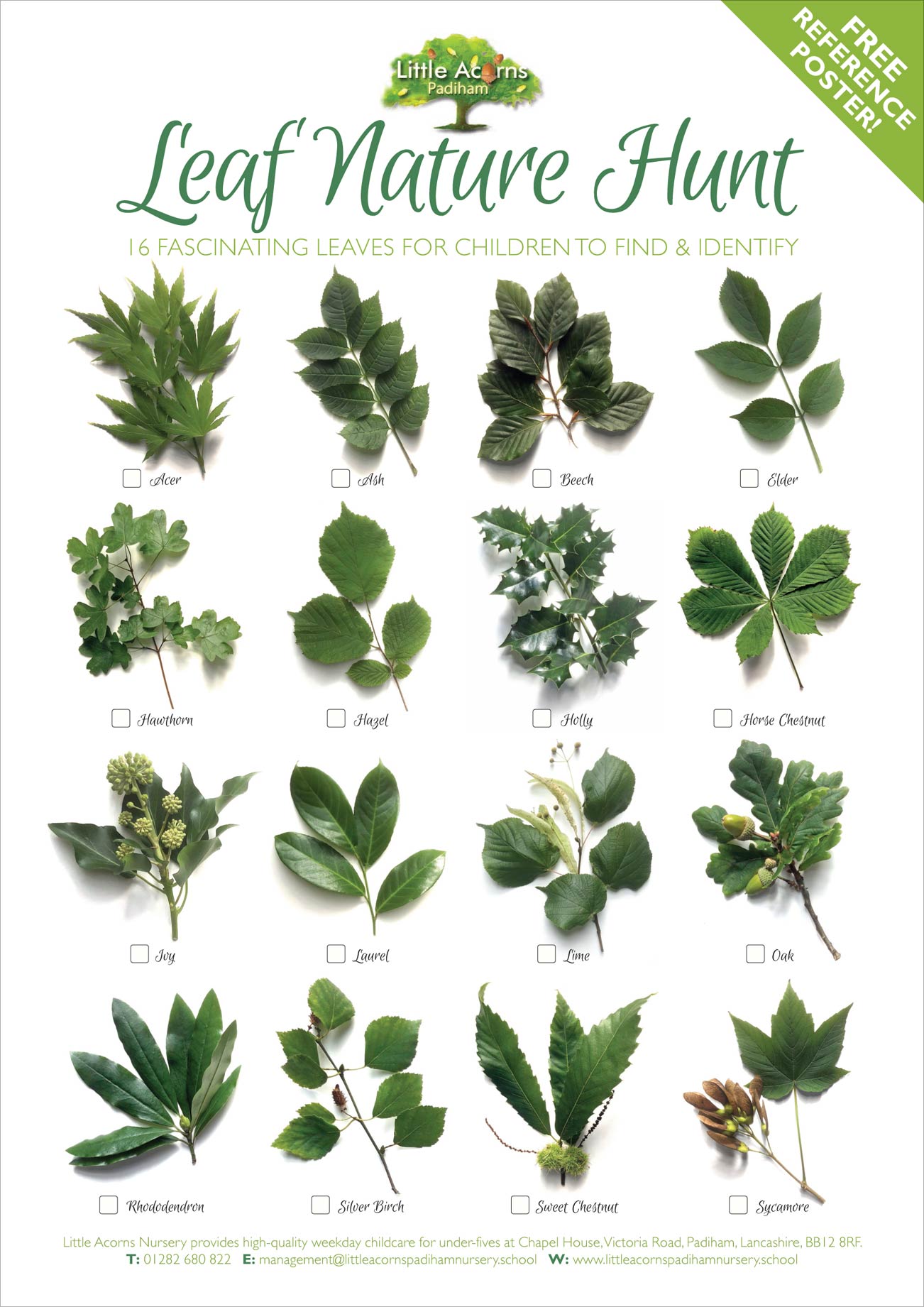
 Point out the huge variety of different shapes, sizes, and textures of leaves in the natural world.
Point out the huge variety of different shapes, sizes, and textures of leaves in the natural world.
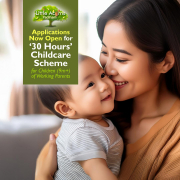
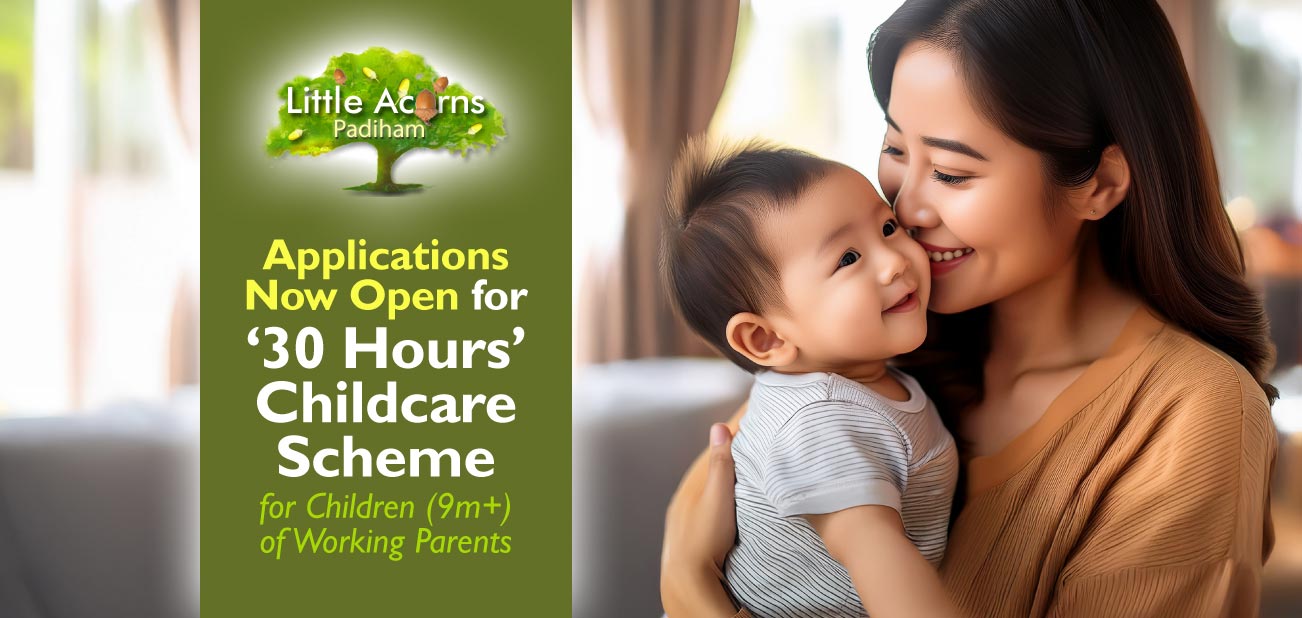
 Attention working families: applications are now open for eligible children, aged from only 9 months, to receive 1140 hours of free childcare per year from September 2025. What’s noteworthy is that this will be the first time such young infants and toddlers can access so many free hours. It effectively doubles the number of free childcare hours previously available to those under 2 via the scheme. The new, extended funding is for eligible working families, who now have until the 31st of August to apply if they would like their child(ren) to start in the September 2025 term.
Attention working families: applications are now open for eligible children, aged from only 9 months, to receive 1140 hours of free childcare per year from September 2025. What’s noteworthy is that this will be the first time such young infants and toddlers can access so many free hours. It effectively doubles the number of free childcare hours previously available to those under 2 via the scheme. The new, extended funding is for eligible working families, who now have until the 31st of August to apply if they would like their child(ren) to start in the September 2025 term. This newly extended scheme will be profoundly beneficial to parents, children, the business world, and the economy. Let’s take a look:
This newly extended scheme will be profoundly beneficial to parents, children, the business world, and the economy. Let’s take a look: The funded childcare is for children of working parents with earnings within the specific range outlined below. Under this scheme, children receiving the free hours from the September 2025 term must be aged no less than 9 months old on 1st September 2025 and free funding for those who remain eligible is available right up until school age.
The funded childcare is for children of working parents with earnings within the specific range outlined below. Under this scheme, children receiving the free hours from the September 2025 term must be aged no less than 9 months old on 1st September 2025 and free funding for those who remain eligible is available right up until school age. As our families regularly confirm, Little Acorns in Padiham is a highly-regarded childcare nursery that attracts
As our families regularly confirm, Little Acorns in Padiham is a highly-regarded childcare nursery that attracts 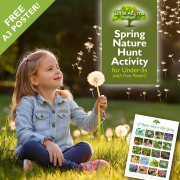
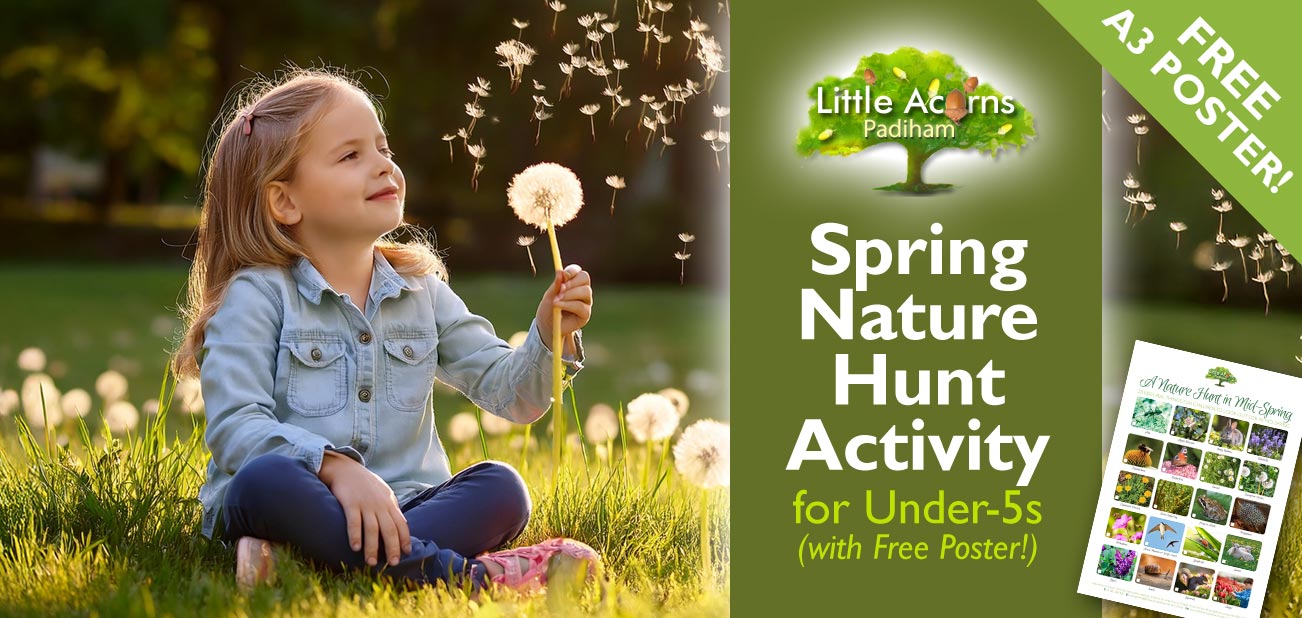
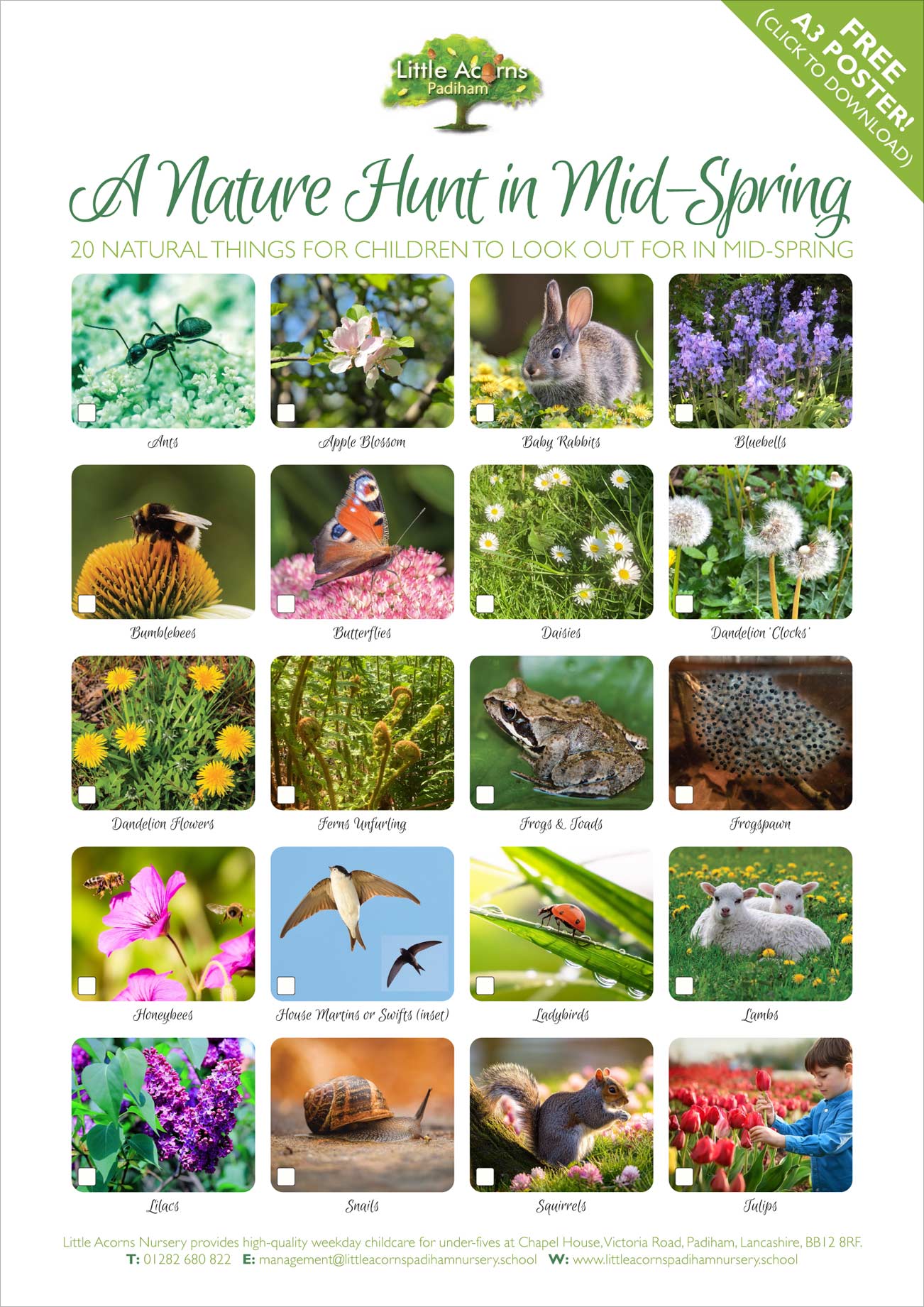
 Bluebells also come in pink or white. They’re referred to as pinkbells (also known as pink bluebells and Spanish bluebells) and whitebells (or white bluebells).
Bluebells also come in pink or white. They’re referred to as pinkbells (also known as pink bluebells and Spanish bluebells) and whitebells (or white bluebells).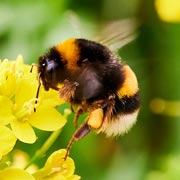 Does your child know about bee nectar baskets? Those are the little yellow leg pouches that can be seen on some bumblebees’ and honeybees’ legs. They are where the bees collect and store their nectar ready to transport back to the hive.
Does your child know about bee nectar baskets? Those are the little yellow leg pouches that can be seen on some bumblebees’ and honeybees’ legs. They are where the bees collect and store their nectar ready to transport back to the hive. We’ve said before — and we’ll keep on saying — nature is incredibly good for children and adults alike. But what are some of the benefits, and why is nature so important to children? Well, we wrote an article about it and you can read our top
We’ve said before — and we’ll keep on saying — nature is incredibly good for children and adults alike. But what are some of the benefits, and why is nature so important to children? Well, we wrote an article about it and you can read our top 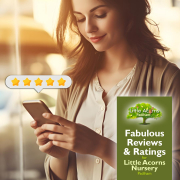

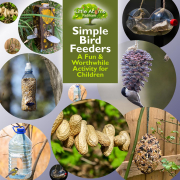
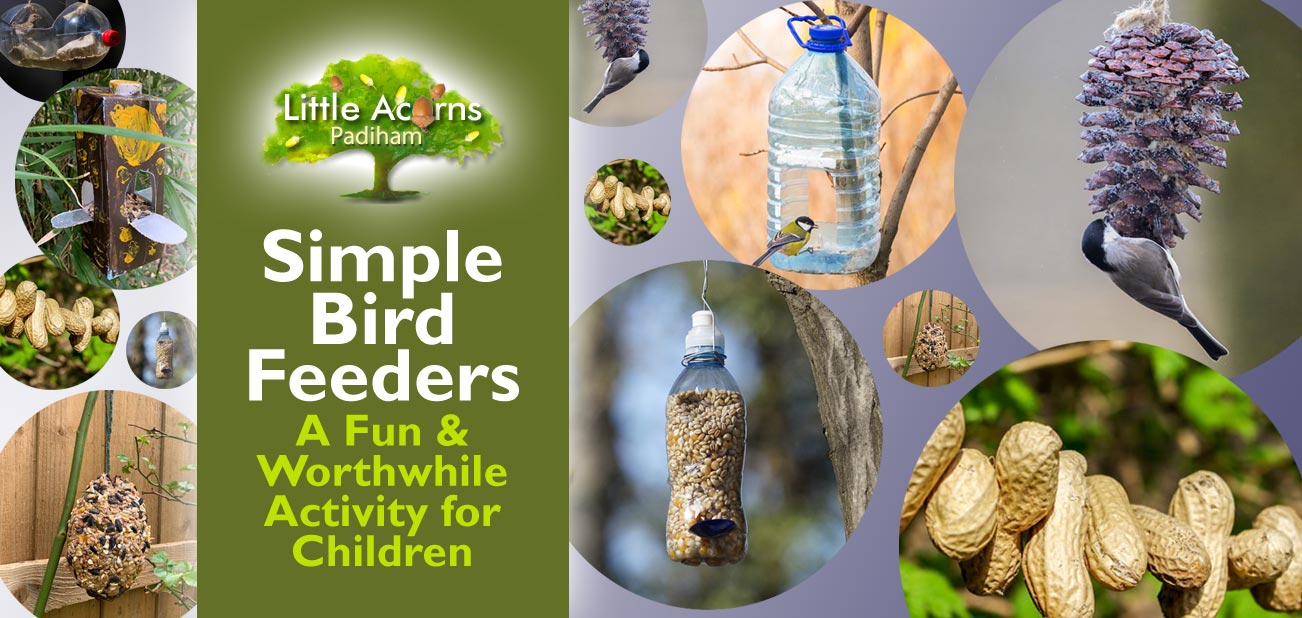
 One fantastic way to encourage children to connect with nature from an early age is by making homemade bird feeders. It’s a hugely popular activity amongst children of all ages, so today’s post is all about how to get started with your child. Although bird feeders can be made at any time of the year, the activity is perfectly suited to the winter and early spring. At this time, wild birds like robins, blackbirds, doves, and sparrows are really struggling to find food. And, with World Wildlife Day arriving in the first week of March, it’s very timely. Take a look!
One fantastic way to encourage children to connect with nature from an early age is by making homemade bird feeders. It’s a hugely popular activity amongst children of all ages, so today’s post is all about how to get started with your child. Although bird feeders can be made at any time of the year, the activity is perfectly suited to the winter and early spring. At this time, wild birds like robins, blackbirds, doves, and sparrows are really struggling to find food. And, with World Wildlife Day arriving in the first week of March, it’s very timely. Take a look!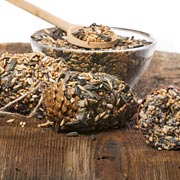 A large, dry pine cone
A large, dry pine cone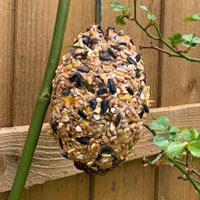 Tie a piece of string securely around the top of the pine cone to create a hanger. Then, let your child spread peanut butter all over the pine cone using a spoon or butter knife. Next, roll the sticky pine cone in a tray of birdseed until it is fully coated. Once completely covered in birdseed, hang it outside on a tree branch or hook and watch as birds come to enjoy their treats!
Tie a piece of string securely around the top of the pine cone to create a hanger. Then, let your child spread peanut butter all over the pine cone using a spoon or butter knife. Next, roll the sticky pine cone in a tray of birdseed until it is fully coated. Once completely covered in birdseed, hang it outside on a tree branch or hook and watch as birds come to enjoy their treats!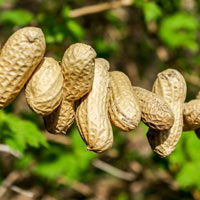 Carefully thread the string through the outer shell of the monkey nuts, tying knots if needed to keep them spaced apart. Once you have a long garland, either tie the ends together to form a loop that can be suspended vertically or attach each end to stretch them horizontally between branches of twigs on a tree or bush. Once birds are used to the new addition to the garden, watch as blue tits, great tits and others enjoy cracking open the shells!
Carefully thread the string through the outer shell of the monkey nuts, tying knots if needed to keep them spaced apart. Once you have a long garland, either tie the ends together to form a loop that can be suspended vertically or attach each end to stretch them horizontally between branches of twigs on a tree or bush. Once birds are used to the new addition to the garden, watch as blue tits, great tits and others enjoy cracking open the shells!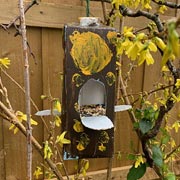 Cut out one or more large holes on the sides of the carton to create openings (adults should do this part for younger children). Thread can be attached at the top – try trapping it under the lid or get an adult to thread it through a hole. Let your child decorate the feeder with paint, stickers, or non-toxic markers. Fill the carton up to the opening(s) with birdseed and hang it up in your garden or balcony.
Cut out one or more large holes on the sides of the carton to create openings (adults should do this part for younger children). Thread can be attached at the top – try trapping it under the lid or get an adult to thread it through a hole. Let your child decorate the feeder with paint, stickers, or non-toxic markers. Fill the carton up to the opening(s) with birdseed and hang it up in your garden or balcony.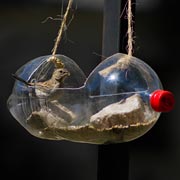 A clean, empty clear plastic water bottle
A clean, empty clear plastic water bottle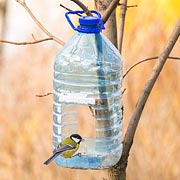 There are a few options for this type of bird feeder, as indicated in the photo examples. Either way, small feeding holes or ‘hatches’ will need to be cut (by a supervising adult) as openings. Optionally, cut small holes on opposite sides of the bottle and insert wooden spoons or sticks through them to create perches. Fill the bottle with birdseed and tie a string to hang it outside. Watch as birds land on the perches and enjoy their treats!
There are a few options for this type of bird feeder, as indicated in the photo examples. Either way, small feeding holes or ‘hatches’ will need to be cut (by a supervising adult) as openings. Optionally, cut small holes on opposite sides of the bottle and insert wooden spoons or sticks through them to create perches. Fill the bottle with birdseed and tie a string to hang it outside. Watch as birds land on the perches and enjoy their treats!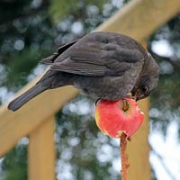 Expose some of an apple’s sides by removing some of the skin. Then, either attach string through (or around) the apple and hang it from a branch outside, or push a stick into it (carefully aimed away from you in case it goes right through) and push the other end into the ground. Watch as birds peck away at the tasty treat! Blackbirds, in particular, love apples!
Expose some of an apple’s sides by removing some of the skin. Then, either attach string through (or around) the apple and hang it from a branch outside, or push a stick into it (carefully aimed away from you in case it goes right through) and push the other end into the ground. Watch as birds peck away at the tasty treat! Blackbirds, in particular, love apples!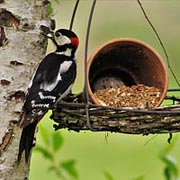 Our personal favourite and key recommendation is sunflower hearts. These are the little kernels inside sunflower seeds and the good news is that by buying them as sunflower ‘hearts’, birds don’t need to remove the shells. Robins, blackbirds, doves, dunnocks, bluetits, great tits and pigeons love them! They’re generally inexpensive, in our experience, and are available widely, including in supermarkets.
Our personal favourite and key recommendation is sunflower hearts. These are the little kernels inside sunflower seeds and the good news is that by buying them as sunflower ‘hearts’, birds don’t need to remove the shells. Robins, blackbirds, doves, dunnocks, bluetits, great tits and pigeons love them! They’re generally inexpensive, in our experience, and are available widely, including in supermarkets.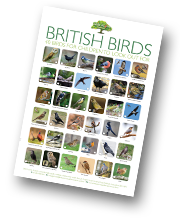 Once your bird feeder is in place, keep an eye out for common garden birds. Typically, birds that are attracted to bird feeders in gardens include robins, bluetits, sparrows, and dunnocks although it does depend on what food you put out for them. Children are also likely to see larger birds like blackbirds, doves, pigeons, magpies and even crows, as they are likely to scavenge underneath for seeds that have dropped from the feeders. To help children identify which birds visit, ensure you have printed out our
Once your bird feeder is in place, keep an eye out for common garden birds. Typically, birds that are attracted to bird feeders in gardens include robins, bluetits, sparrows, and dunnocks although it does depend on what food you put out for them. Children are also likely to see larger birds like blackbirds, doves, pigeons, magpies and even crows, as they are likely to scavenge underneath for seeds that have dropped from the feeders. To help children identify which birds visit, ensure you have printed out our 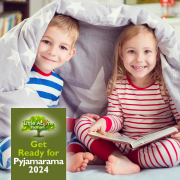
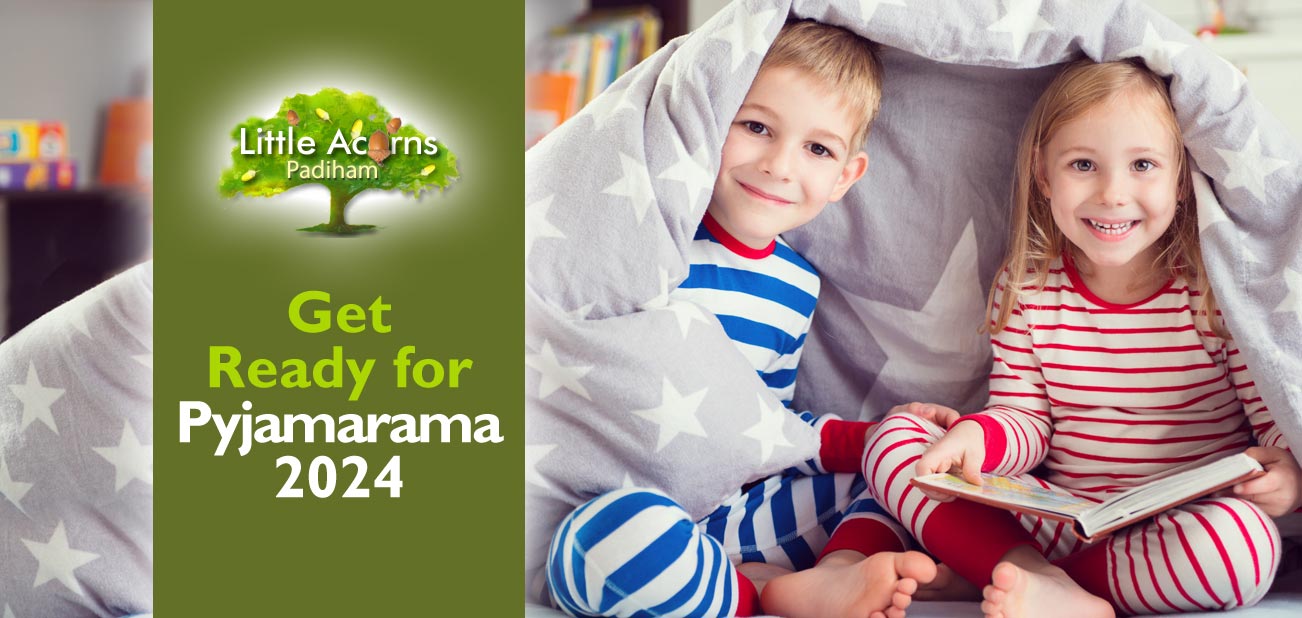
 Pyjamarama is a one-day fundraising event that’s organised through the children’s reading charity BookTrust. It takes place each year across a variety of UK settings including homes, schools, preschools, nurseries and more. As well as being great fun for those organising and taking part, the initiative is beneficial to millions of disadvantaged children. The ultimate aim is to raise money to fund the purchase of books and resources, so that every child in the UK gets the chance for bedtime stories and each family has proper reading opportunities. The initiative is hugely popular, great fun, and transforms lives. Today, we take a look at what to expect, how to get involved, and the many benefits of Pyjamarama.
Pyjamarama is a one-day fundraising event that’s organised through the children’s reading charity BookTrust. It takes place each year across a variety of UK settings including homes, schools, preschools, nurseries and more. As well as being great fun for those organising and taking part, the initiative is beneficial to millions of disadvantaged children. The ultimate aim is to raise money to fund the purchase of books and resources, so that every child in the UK gets the chance for bedtime stories and each family has proper reading opportunities. The initiative is hugely popular, great fun, and transforms lives. Today, we take a look at what to expect, how to get involved, and the many benefits of Pyjamarama. Pyjamarama is always a fun day for both adults and children. The added aspect of pyjamas makes it special, quirky and relaxed. And, at the end of the day, it’s incredibly worthwhile. Not only does it raise money to give disadvantaged children and their families opportunities for reading and bedtime stories, but it also encourages those children taking part in Pyjamarama to read more, for pleasure as much as anything. Additionally, it gives children a different perspective and encourages altruism and empathy for others less fortunate than themselves.
Pyjamarama is always a fun day for both adults and children. The added aspect of pyjamas makes it special, quirky and relaxed. And, at the end of the day, it’s incredibly worthwhile. Not only does it raise money to give disadvantaged children and their families opportunities for reading and bedtime stories, but it also encourages those children taking part in Pyjamarama to read more, for pleasure as much as anything. Additionally, it gives children a different perspective and encourages altruism and empathy for others less fortunate than themselves.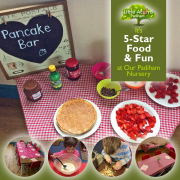
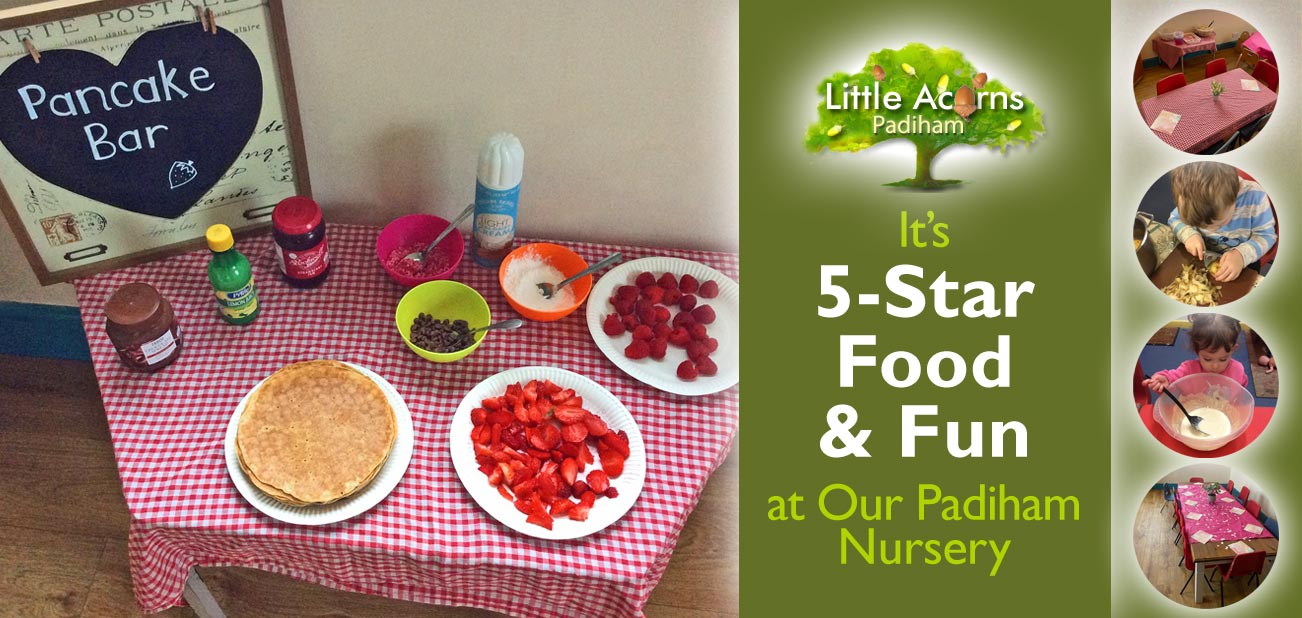
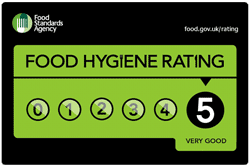 Our Padiham nursery had its annual inspection by the local Environmental Health Officer recently. The purpose was to ensure, as required in all settings serving food, that Little Acorns Nursery has high standards of hygiene and follows the food preparation guidelines specified by the UK’s Food Standards Agency. Once again, Little Acorns Nursery passed with flying colours, achieving a full 5-star rating. That’s the best rating possible and reflects the highest levels of quality for food preparation, the food itself, cleanliness, and competence of staff. So, our thanks and utmost respect go to Kim, our in-house chef/cook, whose high standards, skill and expertise do the children and the nursery proud.
Our Padiham nursery had its annual inspection by the local Environmental Health Officer recently. The purpose was to ensure, as required in all settings serving food, that Little Acorns Nursery has high standards of hygiene and follows the food preparation guidelines specified by the UK’s Food Standards Agency. Once again, Little Acorns Nursery passed with flying colours, achieving a full 5-star rating. That’s the best rating possible and reflects the highest levels of quality for food preparation, the food itself, cleanliness, and competence of staff. So, our thanks and utmost respect go to Kim, our in-house chef/cook, whose high standards, skill and expertise do the children and the nursery proud.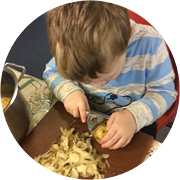 Because the recipe heavily involved potatoes, this also tied in nicely with the book Supertato, which our preschoolers have been looking at in tandem with discussions about food and the importance of a healthy diet. The photo shows one of the children peeling potatoes. Others peeled vegetables and even made their own dumplings. The fun activity helped to nurture children’s learning and the development of new skills and knowledge. The final result was both tasty and a huge hit with the little ones!
Because the recipe heavily involved potatoes, this also tied in nicely with the book Supertato, which our preschoolers have been looking at in tandem with discussions about food and the importance of a healthy diet. The photo shows one of the children peeling potatoes. Others peeled vegetables and even made their own dumplings. The fun activity helped to nurture children’s learning and the development of new skills and knowledge. The final result was both tasty and a huge hit with the little ones!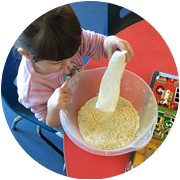 Shrove Tuesday, a.k.a. Pancake Day, arrived on the 13th of February and it gave us a great opportunity to organise pancake-themed activities for the nursery/preschool children … for the entire week! After all, who doesn’t love pancakes? So, as you’ve no doubt guessed by now, our Recipe of the Month for February was home-made pancakes and it’s a recipe the children really enjoyed getting involved in. They loved mixing ingredients in a bowl to make their own pancake mix. We even set up a ‘Pancake Bar’ (see the main photo at the top), which included lots of yummy toppings that children could use to decorate their pancakes. The toppings included strawberries, bananas, chocolate spread, jam, lemon, sprinkles, honey and cream.
Shrove Tuesday, a.k.a. Pancake Day, arrived on the 13th of February and it gave us a great opportunity to organise pancake-themed activities for the nursery/preschool children … for the entire week! After all, who doesn’t love pancakes? So, as you’ve no doubt guessed by now, our Recipe of the Month for February was home-made pancakes and it’s a recipe the children really enjoyed getting involved in. They loved mixing ingredients in a bowl to make their own pancake mix. We even set up a ‘Pancake Bar’ (see the main photo at the top), which included lots of yummy toppings that children could use to decorate their pancakes. The toppings included strawberries, bananas, chocolate spread, jam, lemon, sprinkles, honey and cream.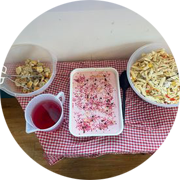 Valentine’s Day, which arrived on the 14th of February, also involved lots of food. After all, as the saying goes, it is often thought of as the language of love! At the nursery, we organised a lovely Grab ‘n’ Go Breakfast for our parents. This was followed by a special 3-course Valentine’s Day meal for our children in our lovely new dining room, which was set up like a little restaurant (see the photos). Children had sausage rolls to start, cheesy chicken and red pepper pasta for the main course and strawberry mousse – with sprinkles – for pudding. Accompanying this was some delicious blackcurrant juice. It all went down a treat with our nursery children, as did several other activities that were themed towards Valentine’s Day.
Valentine’s Day, which arrived on the 14th of February, also involved lots of food. After all, as the saying goes, it is often thought of as the language of love! At the nursery, we organised a lovely Grab ‘n’ Go Breakfast for our parents. This was followed by a special 3-course Valentine’s Day meal for our children in our lovely new dining room, which was set up like a little restaurant (see the photos). Children had sausage rolls to start, cheesy chicken and red pepper pasta for the main course and strawberry mousse – with sprinkles – for pudding. Accompanying this was some delicious blackcurrant juice. It all went down a treat with our nursery children, as did several other activities that were themed towards Valentine’s Day.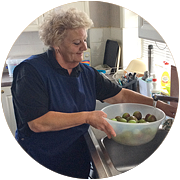 Kim, our talented in-house chef, prepares tasty home-made meals and healthy snacks for children at the nursery. Meals are prepared freshly, on site, using high-quality ingredients, which are locally sourced whenever possible. They are delicious as well as being nutritionally balanced to include a healthy mix of fish, meat, pulses and vegetables.
Kim, our talented in-house chef, prepares tasty home-made meals and healthy snacks for children at the nursery. Meals are prepared freshly, on site, using high-quality ingredients, which are locally sourced whenever possible. They are delicious as well as being nutritionally balanced to include a healthy mix of fish, meat, pulses and vegetables. 